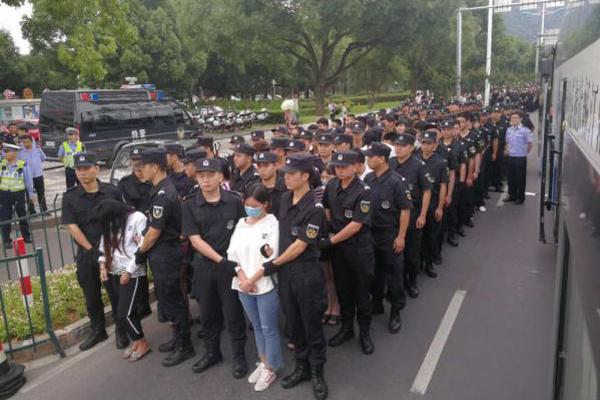Rest When You’re Dead
Economic security in old age is a fading dream Sjoerd Lammer
Sjoerd Lammer o
r
d
F
a
c
t
o
r
y
This is the first in a series of columns discussing retirement in the United States. The next two will look at where the 401(k) system came from and the threats facing it, as well as the political football that is Social Security. The last one will look at how other countries handle retirement and what we might learn from them.
Feeling bleak about?the likelihood that I will have to work forever, I made an anonymous survey one night this spring, took it to the usual social media platforms, and asked if anyone else felt the same way. Most of the three dozen people who responded shared my pessimism. In comments, they echoed a college instructor I once had who half-seriously referred to her impending retirement as a descent into poverty that would ultimately end with her living on cat food and dying alone. A little dramatic, I naively thought at the time. I don’t think so anymore.
What would life look like when people got into their late sixties, I wondered. Worrying and workingwas the common response. “Who knows where or what. Probably hourly work with few benefits,” wrote one person in his late thirties who identified himself as white. “Retirement is a nice idea from a world that long ago ceased to exist.”
It’s hard to respond to questions about the future, he continued, because “the graphs of millennial life have been sobering, dramatic arcs: inequality, wage stagnation. . . . So do I feel comfortable setting up a retirement account that funnels money into a securities market that rich people use for gambling, and that is increasingly at odds with on the ground economic realities? Especially when there is no sign those arcs will bend? Hell no.”
Others wrote that they have pushed the thought of retirement out of their minds altogether.
“‘Imagine?’ People still do that? At this point I can barely imagine next week,” wrote a person who identified himself as African American and in his late thirties, who has no retirement savings and expects to work forever. “Used to think it would be nice, but then my mom (school teacher for 40+ years) retired and started living on $200 a month from Social Security and $100 from her teacher’s retirement plan,” he wrote. “As you can imagine, it’s not enough.”
A person in her early thirties, who identified as Hong Kong/Asian American, wrote that she, too, is watching her parents. “My parents were forced into early retirement because their business wasn’t sustainable under Trump’s tariffs and there is no way they will be able to live on their savings for more than a decade, at the very most,” she wrote. “Any savings I had even remotely planned for the future will be for them. There is no true meaning of savings for me.”?
Even among my respondents with dedicated retirement savings accounts, there was little expectation of retirement. Only seven said they would probably have enough money to stop working at some point. The biggest group, nineteen people, said they had no such expectations. That group cut across demographics, and included people who identified as American Indian, Asian American or Hong Kong American, Arab, Black, mixed-race, and white, ages twenty-three to fifty-nine. As for Social Security, all but five people in the overall group said think they’ll get nothing, or at least were unsure about it.
The pandemic shows how precarious it is to tie people’s health care to employment; we see the same injustice in the American system of retirement—comfort for the privileged few, penury for the rest.
My survey was informal and not scientific, and there are other surveys by bigger institutions that put similar questions to a lot more people. But like every other issue in the United States related to the allocation of resources, reality depends on who’s talking. Ask the Federal Reserve, and they’ll say that at the end of last year, less than 40 percent of people who hadn’t retired yet were confident that their retirement savings “are on track.” Ask the Employee Benefit Research Institute, and they’ll tell you that in January, 69 percent of Americans were confident they could retire comfortably. Pew Research Center, meanwhile, says not so; they reported in March 2019 that Americans as a whole are pessimistic about retirement and skeptical about Social Security.
But like the financial news outlets covering these studies, none address the real villain, which is that retirement in the United States is a hodgepodge of unreliable options that are subject to the whims of Washington, D.C., and Wall Street. Just as the pandemic has dramatized how precarious it is to tie people’s health care to employment, you can see the same injustice in the American system of retirement—comfort for the privileged few and penury for the rest.
Consider, as well, the ways that today’s retirement benefits depend on one’s fortunes in the labor market: for ordinary workers neither the old-school “defined benefit” pension, nor the new “defined contribution” 401(k) type guarantee they’ll have enough to live on. The first plan defines the amount you’ll get at retirement and has been dying out since the 1980s. Just a handful of companies still offer them. In the public sector, where they’re still common, these pensions are severely underfunded—by as much as $4.7 trillion in the aggregate, according to some calculations. In other words, there’s not enough money to pay everybody. And pension plans suffer even more in economic downturns such as the Great Recession of 2008. Though many states have strong legal protections to prevent cutting public employees’ already-promised benefits, the pressures have led to cutbacks in benefits to new workers.
In the private sector, the newer type of employer-sponsored plan defines how much money employees can put into the fund but doesn’t guarantee how much they’ll get out. It’s an untested model—nobody knows whether they can really support a lot of people retiring on them all at once because that hasn’t happened yet. And even if they can, employers can switch off their contributions to these plans whenever they want, as some are doing now to save money during the pandemic (including multi-billion-dollar firms like Hewlett Packard Enterprise and Quest Diagnostics) and as my employer did to me a few years ago.
People in these kinds of plans are the lucky half or so of all workers. For the other half, there’s Social Security. That program doesn’t provide enough to live on for the people who need it the most, and it will run out in fifteen years, according to its board of trustees—or sooner, according to one group of economists. Of course, Congress could save the program by adjusting formulas and changing the payroll tax, but that would depend on having a different kind of Congress than we do now. As a final option for retirement security, there’s personal savings, which don’t amount to much for most people.
Like all the other crises confronting us today, the warning bells for this one have been sounding for a long time, including in D.C. and on Wall Street. Sometimes they’re muffled by self-interest; a common complaint in financial industry white papers is that people aren’t making enough via their 401(k) plans because they’re not investing enough, as if that’s a deliberate decision and not a consequence of being broke, or, heaven forbid, an indication that 401(k) plans aren’t fit for purpose. Another compliant is that life expectancy has gone up so much that people are outliving their savings. Modern medicine is just too good.
These are not the problems. The problem is that the United States has no retirement guarantee, just like it has no health care guarantee. The condition of the human body, how it sometimes gets sick and inevitably gets old and dies, is considered only in terms of how much money that whole process might make for someone else (who also will one day grow old and die—a never-ending, twisted pathology).
Among my survey respondents, some wrote that their employer offers a 401(k) plan but they can’t afford to invest much in it. Or that the financial crisis of 2008 wiped out their savings so thoroughly that they can’t make up the difference. Or that they feel cheated. Or that thinking about the future gives them insomnia. Or that thinking about the future is pointless because there won’t be one. “Feel like we can’t talk about retirement without talking environmental collapse. Will there even be a habitable planet by the time I’m old enough to retire?” wrote a twenty-nine-year-old person who identified himself as Arab, who has retirement savings but does not think he’ll ever retire. “What’s the point in saving up for retirement?”
One African-American person in her mid-forties summed up the overall sentiment. What would she be doing in her late sixties? “Struggling.”
The saying “I’ll rest when I’m dead” has always had a literal edge to it in the United States, and the coronavirus pandemic has honed it razor-sharp. Everyone, no matter how much they have in the bank, deserves to rest long before that. If you believe we still have time to make a better world, we should put that on our to-do list.
If you want to share your thoughts about retirement, send a message to [email protected].




















